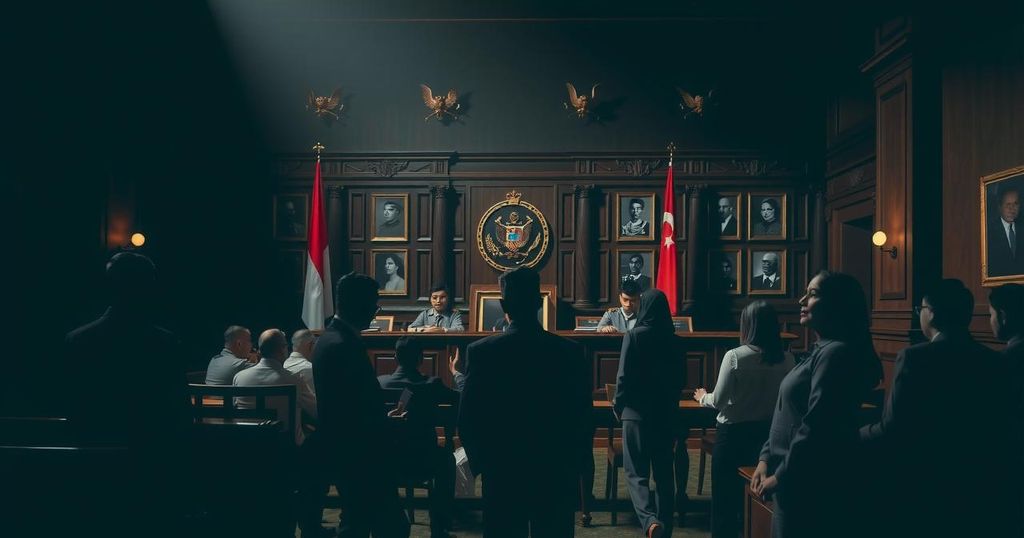An international tribunal has declared Indonesia guilty of crimes against humanity for mass killings in 1965-66, implicating U.S., U.K. and Australian complicity. The findings included an account of 400,000 to 500,000 murders and wide-ranging abuses, calling for Indonesian accountability. The government has rejected the recommendations, aiming to handle the issue independently. The tribunal, while non-binding, sparks discussion on the need for recognition and truth regarding these historical events.
An international panel of judges has officially concluded that Indonesia is guilty of committing crimes against humanity during the mass killings that occurred between 1965 and 1966. The findings were presented by presiding judge Zak Yacoob, a former South African Constitutional Court Justice, during a session of the International People’s Tribunal on 1965 Crimes Against Humanity in Indonesia (IPT 1965). Judging from the evidence, the tribunal determined that the Indonesian state, particularly its military, is responsible for extensive atrocities, including the brutal murder of between 400,000 and 500,000 individuals, the imprisonment of around 600,000 people, and various human rights violations such as torture and sexual violence. Judge Yacoob emphasized the systematic nature of these crimes and indicated that they could be classified as genocide, accusing the United States, the United Kingdom, and Australia of complicity in these acts. The violent upheaval was initiated by the assassination of several generals in September 1965, which was manipulated by General Suharto and the military to target members of the Indonesian Communist Party (PKI), leftists, and suspected sympathizers, resulting in a massive purge. The tribunal’s findings call for the Indonesian government to formally apologize to the victims and their families, as well as to pursue thorough investigations into the crimes. Despite this, the Indonesian government has rejected the tribunal’s recommendations. Chief Security Minister Luhut Panjaitan stated, “Our country is a great nation,” asserting a desire to address the issue independently through universal values. Experts involved in the tribunal have acknowledged its non-binding nature. Notably, Todung Mulya Lubis, a prominent human rights lawyer and the chief prosecutor, remarked on the significant need for accountability regarding the incidents that transpired more than half a century ago. This panel of judges listened to testimonies from witnesses and victims during a four-day hearing in the Hague, further shedding light on this historical atrocity, which remains a sensitive subject in Indonesian society.
The mass killings in Indonesia during 1965-66 followed the assassination of six army generals, an event that incited hysteria against members of the Indonesian Communist Party (PKI) and individuals perceived as leftist. Under the command of General Suharto, who later became the President of Indonesia, the military and allied organizations orchestrated extensive violence leading to widespread human rights violations and loss of life. The aftermath of these events left lasting scars on Indonesian society, and awareness of the tragedy and its implications has been a long-standing issue in Indonesian politics and human rights discourse. The International People’s Tribunal is a significant attempt to address these historical grievances, even though it may not possess legal force.
The IPT 1965’s declarations present a historical reckoning for the events that transpired during the 1965-66 massacres in Indonesia. By identifying the Indonesian state as culpable and highlighting the complicity of Western nations, the tribunal’s findings aim to provide validation for the victims and their families. While the Indonesian government has rejected these conclusions, the call for accountability and recognition of these crimes against humanity persists, emphasizing the social and political need for truth and reconciliation in the face of a troubled past.
Original Source: time.com







